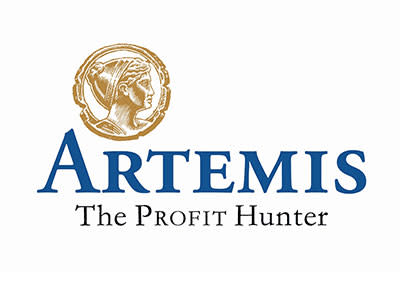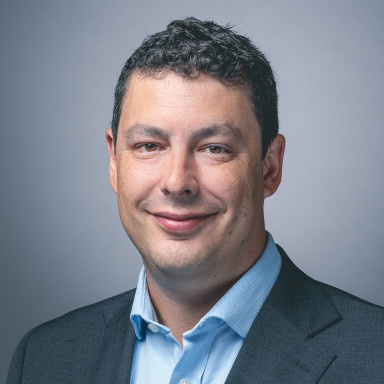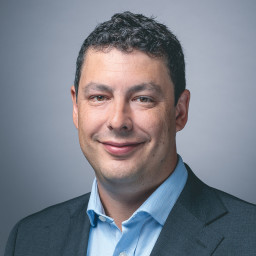The fund is managed by David Ennett, Liam O’Donnell and Grace Le, who are experienced bond fund managers
The managers can invest flexibly across different bond markets
The managers benefit from the support and challenge provided by a strong fixed income team at Artemis
The fund doesn’t feature on our Wealth Shortlist of funds chosen by our analysts for their long-term performance potential
How it fits into a portfolio
The managers aim to provide a combination of income and capital growth over the long term by investing across different areas of the bond market. This means the Artemis Strategic Bond fund could provide something different to a bond portfolio, add some diversification to a shares portfolio, or be considered for an income-focused portfolio. The managers can invest in high-yield bonds and have the flexibility to use derivatives which adds risk.
Manager
The team that run this fund changed in November 2023. This is the second change to the management team in recent years, with the prior managers only running the fund since November 2021. Fund manager changes often cause disruption to how a fund is run and are something we typically view negatively. That said, we view the new managers highly and back some of the other funds that they run at Artemis on our Wealth Shortlist.
The new managers are David Ennett, Liam O’Donnell and Grace Le. They all focus on different parts of the fund, but share decisions around bringing the separate parts they specialise in together into a single fund.
Ennett joined Artemis in February 2019 from Aegon Asset Management, where he was Head of High Yield. He has worked in financial services for over 20 years, the majority of which has been focused on bond investing.
O’Donnell joined Artemis in November 2023 to become a manager on this fund. He joined from abrdn where he was head of nominal rates as well as being a fund manager on a number of strategies including abrdn’s Strategic Bond fund.
Le joined Artemis in December 2019 from Aegon Asset Management where she was co-manager on a range of investment grade bond funds. She has over 10 years’ experience working in financial services.
Ennett has a focus on high yield bonds while Le’s specialism is investment grade bonds. O’Donnell spends his time working on how the fund is invested to cope with interest rate changes as well as the wider economic environment.
We think the three managers have potential to do well on this fund over time, however it is too early to make any meaningful assessment as things stand.
Process
The managers shift between different areas of the bond market, moving between government bonds, investment-grade corporate bonds, and higher-risk high-yield bonds as market and economic conditions change. The fund's positioning is determined by the managers’ views on where we are in the economic cycle combined with their analysis of the prospects for individual companies and governments.
When they're concerned about economic prospects, they're likely to invest more in lower-risk government bonds and less in high-yield bonds. They'll do the opposite and be more adventurous when they think the outlook's positive. They aim to have a good mix of investments across a variety of sectors, credit ratings (the quality of the bond) and maturities (the length of time until the bond matures) to reduce the risk of one area dominating performance. The managers want the fund to be balanced, with the potential to perform well in a variety of economic conditions.
Over the last 12 months, the managers have reduced investments in government bonds, taking the proportion of the fund invested in this area from around 20% at the end of February 2023 to around 9% at the end of January 2024. They have reduced investments in high yield bonds over the same period from around 27% to 21%. In contrast, they have increased investments in investment grade corporate bonds from around 43% to 55%.
The managers have increased their investments in investment grade corporate bonds as they feel these offer the best combination of risk and reward on a forward-looking basis. With all bond yields having increased, investment grade corporate bonds are offering an attractive yield with a low probability of companies defaulting on their bond payments. The team think the returns on offer more than compensate for any default risk in this area of the market.
The managers have increased their duration over the last 12 months. Duration is a measure of how sensitive the fund is to interest rate changes and is measured in years. The higher the duration value, the more sensitive the fund is to interest rate changes. Remember that as interest rates rise, bonds tend to lose value and vice versa. The managers think the likelihood of interest rate cuts is higher today than it was 12 months’ ago and so want the fund to have a higher level of sensitivity to any cuts that may come from here. The increase in duration has been from around 5.6 years to 6 years.
Culture
Ennett is a partner at Artemis, which is a private company. We think this structure is a good thing for investors, as both manager and firm are focused on the long-term prospects of the fund. While O’Donnell and Le are not yet partners of the business, this acts as a meaningful incentive to them in terms of career progression.
Fund managers at Artemis are required to invest their own money into their funds, and this means they succeed when their investors do. Artemis also provides an attractive environment for fund managers, allowing them the freedom to run money how they see fit without imposing a ‘house view’ on them. It’s also a collegiate atmosphere, with managers supporting and challenging each other.
While the fixed income team at Artemis is smaller in number when compared to many of the larger asset managers in the industry, we have a very positive view of the team, particularly Head of Fixed Income Stephen Snowden. We therefore think that the managers are suitably resourced to run their funds.
ESG Integration
Investment teams at Artemis are encouraged to think for themselves and invest according to their own style, so the approach to ESG (Environmental, Social and Governance) integration across the firm varies. Recent meetings with the Artemis teams we back on the Wealth Shortlist suggest ESG is starting to become a more important factor. Artemis has a firm-wide policy to support the aims of international conventions on cluster munitions and antipersonnel mines and therefore the firm will not knowingly invest in companies which produce these weapons.
The firm also provides ‘responsible investing stamps’ next to each of its funds, which help investors see, at a glance, which forms of responsible investment are incorporated in each fund. Artemis votes on all their holdings, unless restricted from doing so, and fund managers engage with firms to develop their understanding, raise issues with management and monitor subsequent developments.
While the managers are incorporating increasingly more ESG into their processes, this is not an ESG labelled fund and the risk-return profile of the bonds they invest in remains the most important thing.
Cost
This fund has an ongoing annual charge of 0.59%, but we've secured HL clients an ongoing saving of 0.11%. This means you pay a net ongoing charge of 0.48%. The fund discount is achieved in the form of a loyalty bonus, which could be subject to tax if held outside of an ISA or SIPP.
Our platform charge of up to 0.45% per annum also applies, except in the HL Junior ISA, where no platform fee applies.
Performance
Over the 12 months to the end of February 2024, the fund has underperformed the IA £ Strategic Bond sector average, returning 5.51%* compared to 6.01%. Remember though that past performance is not a guide to future returns. The performance over this period comes from a combination of the previous and current management teams.
The worst performing investment for the fund were bonds issued by Credit Suisse that lost nearly all of their value. This was due to the buyout of Credit Suisse by UBS, which was conducted with material involvement of the Swiss financial regulator, FINMA. It was a direct result of the banking crisis that started in the US with Silicon Valley Bank in March 2023. While it is disappointing that the fund held some of these bonds because of the eventual losses, this was a very specific situation and it isn’t deemed to be a concern on a forward looking basis.
Investment grade corporate bonds provided the most positive return for the fund over the period. This is also the area where the managers have the most money invested, so this isn’t a surprise. High yield bonds also added value for the fund. Investments in banks and insurance performed positively, while some investments in brokerage services and computer services lost value. In terms of specific bonds, some issued by Blackstone Property and the AA were particular highlights.
Annual percentage growth
28/02/2019 to 29/02/2020 | 29/02/2020 to 28/02/2021 | 28/02/2021 to 28/02/2022 | 28/02/2022 to 28/02/2023 | 28/02/2023 to 29/02/2024 | |
|---|---|---|---|---|---|
Artemis Strategic Bond | 7.34% | 3.56% | -2.43% | -5.53% | 5.51% |
IA £ Strategic Bond | 7.97% | 3.77% | -1.70% | -7.05% | 6.01% |


